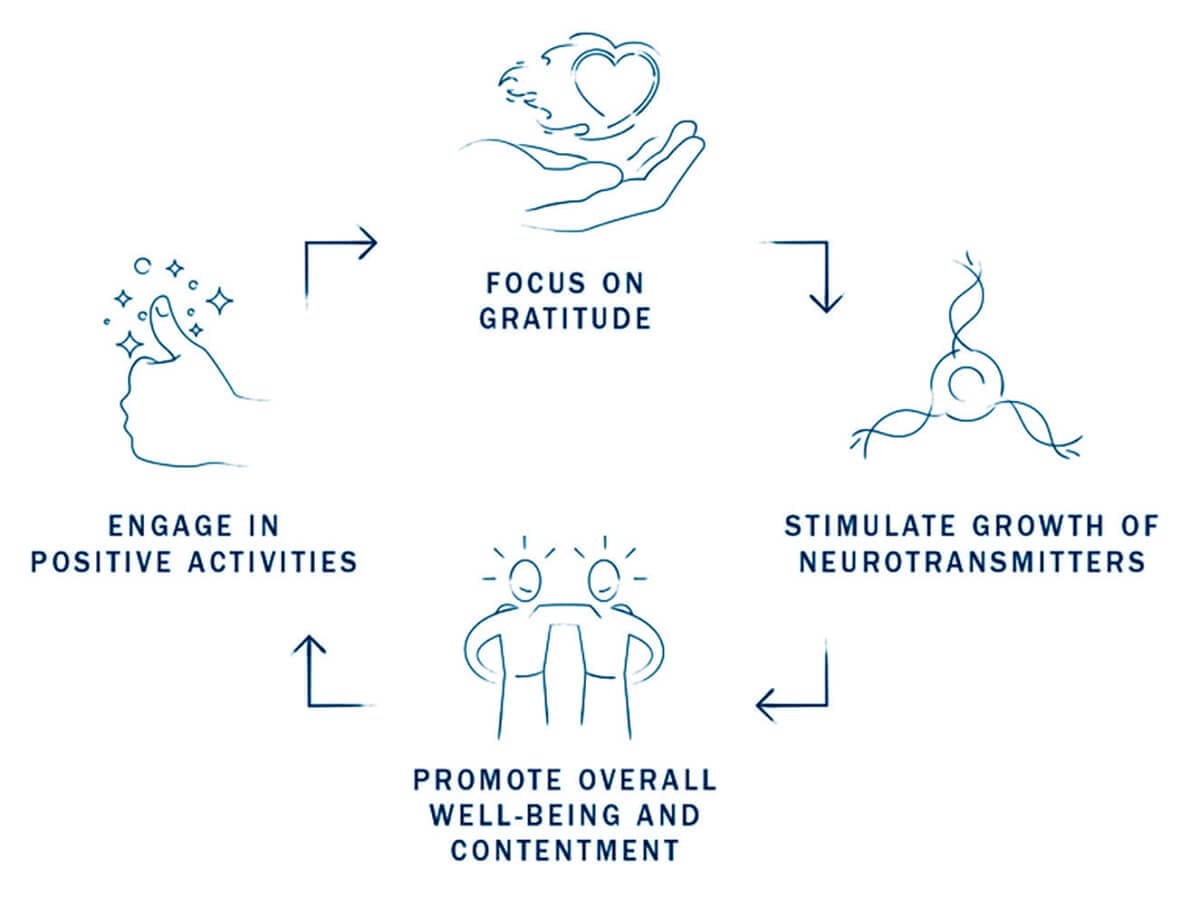Tags: Definition of gratitude. Mental health and well being.
Gratitude
“Piglet noticed that even though he had a very small heart. It could hold a rather large amount of gratitude”
– A.A. Milne
Over the past 10 years, we have seen a huge increase in the scientific study of happiness. Though findings thus far are complex, and incomplete. However, if they could be distilled into one simple prescription for happiness, it would probably be this: “Say thank you”.
Some definitions of gratitude:
1. Gratitude as an (effective) trait: A built-in, personality level trait which determines how often and deeply we feel gratitude.
2. Gratitude as a mood: Gratitude as a singular emotion lasts for only a few seconds. To explain how gratitude inducing interventions like a gratitude journal work, rather than changing our personality trait, they instead induce a mood of gratitude, which in turn gives rise to more gratitude emotions.
3. Gratitude as an emotion: The actual positive emotions which recognize the intentional, beneficial actions of others – lasts only a few seconds.
The Science of gratitude
Shifting our mindset to focus on the good, acts as a natural antidepressant. Neuroscience research has found a link between positive thoughts and the activation of certain neurotransmitters (chemicals released from our nerve cells that inform other parts of our body).
Simply put, this means that focusing our attention on things we are grateful for actually forces a shift to the positive. This act stimulates more neurotransmitters in our brains, specifically dopamine and serotonin, which promote feelings of contentment. Gratitude is a fundamental thread that holds the tapestry of our social fabric together. Feelings of gratitude nurture our individual mental health and fortify our bonds with other people.
The personal and interpersonal benefits of gratitude occur at both a psychological and neurobiological level. Gratitude is linked to decreased depression, increased optimism, less physical complaints, and higher levels of Dopamine in the brain. Perhaps what is best about gratitude is that it’s free and it feels good. The idea that being thankful may make you feel better has also been supported by neuroscientists, suggesting that practising gratitude can encourage changes in the brain that improve mood.
A 2009 National Institute of Health study, for example, found that gratitude may trigger a stronger blood flow to the hypothalamus, which plays a role in stress levels and sleep patterns. Gratitude has also been found to activate the neurotransmitter dopamine chemical. Research has informed us that gratitude is a key to psychological well-being.
Gratitude can make people
• happier
• improve their relationships
• potentially counteract depression and
• suicidal thoughts.
But might the benefits of gratitude go beyond that? Could gratitude be good for your physical health, too?
We know that practicing gratitude can;
• Help us feel more zest for life
• stress less
• sleep better
• express more compassion and kindness
• forge stronger relationships
• may even boost our immune system.
When we focus our thoughts on good, we feel good, which then informs our actions. Feeling good is what enables us to engage in activities that fuel us. It helps shape our essence, how we perceive the world around us, and our ability to analyse and reflect. “Gratitude rewards generosity and maintains the cycle of healthy social behaviour.” In fact, generosity and gratitude work in tandem, and in ways that benefit both the giver and receiver. How do we practise gratitude?
Here are some ideas for practising gratitude.
• Journal five things each day that you are grateful for.
• Write a letter to thank someone who has impacted positively on your life. Be specific about what it is you appreciate about them and send the letter. Alternatively, hand deliver the letter and read it to the recipient.
• Be on the look-out for things to say thanks to. For instance, a stranger performing a kind deed, a friend providing a listening ear, receiving fabulous customer service.
• Take a ‘gratitude walks’ and observe your environment with the intent to appreciate the beauty of your surroundings. Examples include spotting a beautiful flower, a rainbow, striking architecture, witnessing acts of kindness amongst others.
We can be grateful for a wide range of things, both big and small, such as:
• Having positive people in our life
• The smell of coffee in the morning
• Our senses such as sight and sound
• Living near the ocean
• Good health
• Family and friends Gratitude can be used as a moral barometer, we use it to emotionally feel the size and nature of a gift from another.
Research shows that people are more likely to feel gratitude towards:
• Acts done by strangers than family members
• Larger acts than smaller acts
• More inconvenient acts
• Gratitude can be used as a moral motive
Research has indicated that those who felt gratitude were more likely to help others. Because;
• it encourages pro-social behaviour
• discourages societally disruptive behaviour
Studies show that expressions of gratitude encourage pro-social behaviour in the future. Simply by thanking people can lead to them offering to help more and, freely.
Gratitude can be correlated with certain personality traits. This is proven only half true
• only agreeableness is shown to be positively correlated with gratitude (and narcissism negatively correlated)
• unexpectedly, extroversion, conscientiousness, and neuroticism had nearly no correlation with gratitude
It is important to note that whilst gratitude can promote mental wellbeing, there are also times when we can benefit from professional support to manage life’s challenges. In these situations, GPs are a great starting point and can assist with identifying a mental health professional suitable for your needs.
“We make a living by what we get; we make a life by what we give”
– Winston Churchill – 1874 -1954


